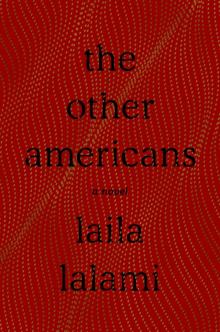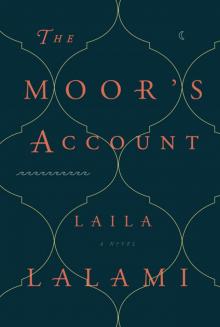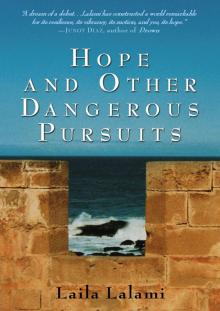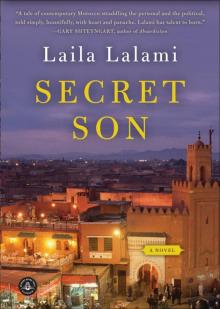- Home
- Laila Lalami
Hope & Other Dangerous Pursuits Page 12
Hope & Other Dangerous Pursuits Read online
Page 12
The women’s entry into Botbol Bazaar and Gifts provided a welcome distraction, and so he stood up, tossing the book aside. Anas, the other salesman, was slouched on a chair in the corner, snoring softly, as he did most afternoons. The owner was in Agadir on vacation, and Murad had been given the keys to the shop, much to the dismay of Anas, who’d been working there longer. Still, Murad got along reasonably well with him, mostly because he didn’t mind when Anas took long breaks from the shop under the guise of going to get cigarettes or when he spent the afternoon asleep. Anas’s head bobbed and jolted him awake. He looked around at the shop, saw the two women, and snapped to attention.
The women were both young, perhaps in their late twenties. One wore jeans and a loose henley shirt and a burlap bag whose strap crossed her chest, separating her breasts. Her strawberry blond hair was secured with a chopstick at the back of her head. Her friend, a dark-haired, heavy-set girl, was breathing heavily, having just come up the steep hillside street outside. Her blue shirt was stained under her arms, and she carried a handbag with the designer’s name boldly proclaimed on the side. She walked straight to the jewelry case, where silver earrings were displayed next to coral-inlaid bracelets and amber bead necklaces. “How about something like this, Sandy?”
Sandy stood over the display case, looking bored and in a hurry to leave. “Jewelry is so personal,” she said. “Your cousin might not like what you pick.”
“Let’s just take a look. How about that bracelet?”
“Oh, Chrissa,” Sandy said, her shoulders dropping slightly. “I don’t think it’d be appropriate for a wedding gift. Why don’t you get her something for the house?”
Chrissa sighed dramatically, as though she’d been rushed by Sandy all afternoon and had had enough. “Fine,” she said, walking from the jewelry case to the tables laden with souvenirs and knickknacks. Spotting a set of wooden tablets on a shelf, she squealed, “Look!”
Murad had purchased the tablets himself, on his boss’s behalf, at an estate sale a few weeks before. They had been used in Quranic schools until the 1940s, but now, of course, it was increasingly rare to find any. The back of one tablet bore the name of the boy who’d used it (Taher) and the date (1935). It was unusual to have identifying details like this because the tablets were often returned when children finished school and reused by other students. On the front, the boy had written a verse from Sura 96, the very first verse to be revealed to the Prophet: “Read, in the name of thy Lord, who created.” Murad had often wondered about the boy whose tablet had ended up at Botbol Bazaar and Gifts, whether he finished Quranic school and went on to public school or whether he’d been sent into an apprenticeship. He’d imagine Taher’s life, making up parents and friends for him—a father who’d fought on the side of Abdelkrim in the Rif rebellion; a mother who desperately wanted a daughter; five older brothers; a sebsi-smoking neighbor who taught him the flute and the guenbri at night; a crush on a girl who lived up the street from him.
Chrissa picked up the tablet and held it up to the light to examine the writing. “The calligraphy looks beautiful,” she said.
“I just love how the letters curve,” Sandy said approvingly.
“It’s an antique, I think.”
Stuffing her hands in her jeans pocket, Sandy whispered, “Don’t show too much interest, Chrissa, or they’ll jack up the price.” She affected a look of utter disinterest for the benefit of Anas, who sat in the corner watching them.
“Sorry,” Chrissa said. She seemed like the kind of woman who always apologized for something. She carefully put the tablet down on the table, then grabbed at her long hair and peeled it from her neck, wiping the sweat with her hand. “It might work, don’t you think,” she whispered in a conspiratorial tone, “above the console in the entrance?”
Sandy nodded in approval. “I bet your cousin will like it.”
But after staring at the tablet for a while, Chrissa moved on, Sandy shuffling behind her. “What’s wrong? You don’t like it anymore?” she asked.
“Sorry,” Chrissa said. “I just want to see what else they’ve got.”
“When we’re done here, let’s go check out Paul Bowles’s house,” Sandy said.
Murad wondered if it would ever be possible to get away from Bowles, from the dozens of tourists he seemed to inspire to come to Tangier, nostalgic for an era they never even knew. Was it his friendship with Kerouac and Ginsberg? The aura of mystery surrounding his marriage and his affairs? The myths he liked to create? Above all, Murad suspected, it was Bowles’s stories that brought them, year after year. There had been a time in Murad’s life when he’d used the author as bait, to lure tourists into guided tours of the city, but over time he’d grown weary of it.
He leaned with his elbows on the counter and opened his book again. He wanted to give the impression that he was lost in his reading, and he hoped that Anas, who was just now standing from the stool where he’d been perched, would take care of the two women so he wouldn’t have to.
“I hope it’s open to the public. Maybe we can take a picture there,” Sandy said. Tapping her burlap bag, she added, “I brought the camera.”
“I don’t feel very photogenic today.”
“Oh, stop it. You look fine.”
“You know, I don’t even think I’ve read anything by Bowles.”
“Are you serious? Not even The Sheltering Sky?”
Chrissa shook her head. “Sorry.”
“Wow. Then we really should go. It’ll be fun, you’ll see.”
“So he lived here in Tangier?”
“Yep. Came here in the 1930s. It was Alice B. Toklas who advised him to go to Morocco,” Sandy said. “And Gertrude Stein agreed, so he ended up here.”
“Oh, really?” Chrissa said, absentmindedly. “Check this out.” She pointed to a solid brass, horseshoe-shape mirror that hung from the wall, and seeing her reflection, she brushed her brown hair away from her face and pulled at her shirt.
Murad had a hard time keeping up the pretense, the lines blurring again before his eyes as he caught himself eavesdropping on the women. He hadn’t indicated that he understood English, and even though Anas spoke Berber, Arabic, and Spanish, his English was limited to hello and good-bye. Eventually, Murad knew, if the women decided to buy something, he would have to disclose that he understood them, but for now he kept his eyes on his book even as he listened in.
“He lived here until his death.”
“Who?”
“Bowles!” Sandy replied, her tone rising with her exasperation.
“Sorry,” Chrissa said. “So he knew Morocco pretty well, then.”
“Better than the Moroccans themselves.”
WHEN HE WAS a little boy, Murad remembered, his father would sit down at night, cross-legged on the raffia mat, his back to the wall, and tell stories for him and for his sister Lamya. This was when the family still lived in the apartment downtown, before the birth of the twins and baby brother, before his father died and they had to move to the one-bedroom in the medina. He remembered the stories only in fragments, names like Juha and Aisha rising to his consciousness now, pieces of a puzzle that he couldn’t reconstruct. Realizing this, he felt at once angry and sad, as though he had just discovered that a part of him was missing. He stared at the page for a long time, trying to bring back the memory of a single story.
Childhood images of ogres and jinns flickered in his mind’s eye, but he could not hang on to any of them. His father started every story with “Kan, ya ma kan,” “Once there was and there was not.” The timeless opening line was fitting, it seemed to him, to the state he found himself in now, unable to ascertain whether the tales he remembered were real or figments of his imagination. The deep baritone of his father’s voice echoed in his ears, strong and reassuring, and finally one story slowly unraveled for him, the tale of Aisha Qandisha. For days after his father had told the story, Murad had had nightmares that the goat-footed ogress was running after him, calling out his name in a sw
eet voice, and he was tempted to turn around and look at her, but he couldn’t because he knew she would cast a spell on him.
“What do you think about this?” Chrissa asked. She pointed to a Berber rug hanging from the ceiling.
“It’s beautiful,” Sandy said. “Nice workmanship, too.”
“I just love the animal patterns,” Chrissa said. “It would be perfect as a wedding gift, wouldn’t it?”
“Careful, you’re being too eager,” Sandy said.
“Hello,” Anas said.
“See,” Sandy said. She smiled at Anas, but with a distance that suggested she was not interested so please don’t even start. Anas smiled blithely, the extent of his English having been exhausted. He wore a football shirt and washed-out jeans, and he shuffled in his yellow belgha to the light switch, which he turned on, illuminating the display cases. He gestured with his hand that the women were welcome to explore the merchandise upstairs, but they remained where they were, undecided about the rug.
When he’d returned to Tangier a year before, Murad had gone home and refused to go out. He avoided family gatherings, refused to run errands, turned down offers to play soccer with the neighbors. Everyone knew he’d tried to go to Spain, and now they all knew he’d been caught and deported, so he took to staying home with his mother, forsaking even a glass of tea at the Café La Liberté with the other unemployed young men from the neighborhood. He watched his mother as she worked around the house, cleaning or cooking, her bracelets clinking with every movement of her wrists. He’d waited for a reasonable amount of time to pass before he’d asked her for them, asked her to sell them and lend him the money so he could try to go to Spain again. “Have you lost your mind?” she’d said. “Haven’t you learned your lesson? I would never do it, so don’t ask me again.” But Murad asked her again and again, and each time she ignored him. “Can you pass the bread?” she’d say, or, “It looks like it’s going to rain.” She acted as though she was doing him a favor by glossing over an indiscreet remark on his part. It was infuriating, being ignored like this. By then he was spending a lot of time alone with her at home, his sister having married and moved out, the twins still away in college, and his younger brother in school most of the day. They were like an old couple, having breakfast together, watching TV together, increasingly accustomed to the sounds they made throughout the day—the gurgling of the water she used for her ablutions, the creaking of the cabinet door he opened to get his shirts. When his brother-in-law, Lamya’s husband, told him that one of his clients, an old man whose children had immigrated to Israel, needed help at his shop, Murad had jumped on the offer.
Even after he took the job, Murad couldn’t help but wonder what lay ahead. If he hadn’t set foot in Spain, it would have been easier to dismiss his fantasies of what could have been; but he had made it to Tarifa, so every day he daydreamed about the life he thought he would have had. Now, he realized, he’d had it wrong. He’d been so consumed with his imagined future that he hadn’t noticed how it had started to overtake something inside him, bit by bit. He’d been living in the future, thinking of all his tomorrows in a better place, never realizing that his past was drifting. And now, when he thought of the future, he saw himself in front of his children, as mute as if his tongue had been cut off, unable to recount for them the stories he’d heard as a child. He wondered if one always had to sacrifice the past for the future, or if it was something he had done, something peculiar to him, an inability to fill himself with too much, so that for every new bit of imagined future, he had to forsake a tangible past.
“It’s gorgeous,” Chrissa whispered.
“Muy lindo,” Anas said.
Chrissa smiled politely, looking up at the geometric motif. Sandy sighed. “Well, now that he’s here, you might as well ask him what part of Morocco the rug is from.”
Chrissa turned to Anas and in accented Spanish asked him Sandy’s question. She waited to hear the answer and then translated for Sandy. “From Nader? Nador? Someplace like that.”
“Ah. Traditional Berber rugs are usually warm-colored like this one. And look at the animal motifs. Brings to mind some of those Native American drawings, doesn’t it?”
Chrissa nodded in agreement.
The carpet came from a small workshop that had been doing business with Botbol Bazaar for more than twenty years. The owner had died only two months ago, and it was his son who’d brought the latest shipment, carrying each rug into the shop himself. The memory triggered another one, and so Murad remembered another story his father had told, about a young rug weaver and the revenge he took on the man who’d stolen his beloved.
“¿Quieren un te?” Anas asked.
“Oh, I don’t know if it’s necessary,” Chrissa said. “He’s asking if we want tea.”
“I understood that,” Sandy said. “Trust me, they want you to have tea.”
Chrissa seemed to doubt her friend, but deferred to her anyway.
“Si,” Sandy said to Anas, forcefully nodding her head.
Anas smiled and signaled to Murad that he was going to get the tea.
“You’re probably going to get suckered into buying something anyway,” Sandy said, “so we might as well have a cup of tea while we’re here.” She sat down on a chair in the corner and looked around her. “Maybe later we can stop by one of the cafés where Bowles used to hang out,” she said brightly. Suddenly noticing an old leather trunk to her right, she bent over it, admiring the patterns made by the nails. With her finger, she wrote something in the layer of dust.
Chrissa, who’d been sitting quietly with her purse on her lap, turned to look at Murad and, knowing he had seen this, gave him an apologetic look. Murad smiled at her and came out from behind the counter. He wheeled a round tea table over and set it on its legs in front of the girls. “Welcome, welcome,” he said.
If she was surprised, Sandy didn’t let on, as though she had expected him to speak English all along.
“Really, there’s no need for tea,” Chrissa said.
“Please,” he said, “it’s a pleasure.” He sat down, crossed his legs. “So you’re interested in Paul Bowles?” he asked.
“Sure,” said Sandy, her face lighting up. “Have you read him?”
Murad nodded.
“I love his books,” she said, waving a fly away from her face. Her green eyes were lined with kohl. “He’s such a wonderful storyteller.”
“Shall I tell you a story, then, while we wait for tea?” Murad asked.
Sandy’s eyes sparkled with interest, and glancing delightedly at Chrissa, she said, “Sure!”
“Once there was, and there was not, a rug weaver named Ghomari. He was known and admired throughout the land for the tapestries he weaved, and people came from far and wide to buy his work. Ghomari was in love with a beautiful young woman, who was promised to him. She was the daughter of the muezzin and her name was Jenara. From time to time, Jenara would come watch Ghomari work, and she would ask him how long it would take before he would save enough money for her dowry. ‘I have to sell ten more carpets,’ he’d say, or, ‘Only seven more, my love,’ and invariably she would say, ‘Hurry up and sell them, then, so we can get married.’
“One day Jenara had come to watch Ghomari work in his shop in the middle of the afternoon. It was unbearably hot, and so young Jenara sat with her back to the street and unveiled her face. At that moment, the midget Arbo, who was as ugly as he was evil, happened by, and when he saw that Ghomari was busy talking to someone whom he couldn’t see, he jumped inside the shop and saw Jenara unveiled. He was struck dumb by her beauty, and he was still speechless when Ghomari, cursing him, threw him out of the shop.
“From then on, Arbo harassed young Jenara, wherever she was, whether she was on her way to the market or going to the hammam, making declarations of love. Jenara yelled at him. ‘I would rather be dead than become your wife.’ Arbo walked away, already fomenting ways in which he could get revenge. He went to his master, the Sultan, and told him he�
�d seen the most beautiful woman in the entire kingdom, but she was promised to a simple rug weaver. Hearing this, the Sultan said, ‘How can a rug weaver have a more beautiful wife than I? Do what you must.’ And so Arbo waited for the muezzin to be up on the minaret making the call to kidnap Jenara and take her into the Sultan’s harem. The poor girl spent her days crying over her forced marriage to the brutal Sultan, and none of the gifts the Sultan bestowed on her could quiet her crying.
“Poor Ghomari knew that there was no use fighting the Sultan who’d stolen his beloved, so he turned to his tapestry and poured his sorrow into it. He weaved a rug that showed Jenara in all her beauty, her face unveiled, and in her hand a long knife, representing his desire for revenge. When he was done, he marveled at his own creation, which was so lifelike that it was as though Jenara was standing right before him, ready to strike. Ghomari gathered his father and Jenara’s father and showed them the tapestry. They, too, were amazed by the rug, and so they told their wives, who told their sisters, who told their husbands.
“And so, every night, after dark, Ghomari would close his shop to hold viewing sessions of this most marvelous tapestry, until Arbo got word of it. He told the Sultan about the tapestry, and soon enough it was confiscated and Ghomari was put in jail. When the Sultan cast his eyes on it, he was taken once again with how beautiful Jenara looked, but, even more, by the terrifying expression on her face. He showed it to his court, delighting in their reactions, and had it hung in his bedroom. When he next saw Jenara, he told her that Ghomari was to be executed by morning. Jenara didn’t show any sadness over the death of her betrothed. The Sultan asked his trusted Arbo why that might be. The midget replied that perhaps Jenara had finally seen the light. Over the next few weeks, Jenara seemed happy, chatting and joking with Arbo. ‘This is how women are,’ Arbo told his master. ‘Sometimes they have to be shown a strong hand before they’ll learn what’s good for them.’

 The Other Americans
The Other Americans The Moor's Account
The Moor's Account Hope & Other Dangerous Pursuits
Hope & Other Dangerous Pursuits Secret Son
Secret Son